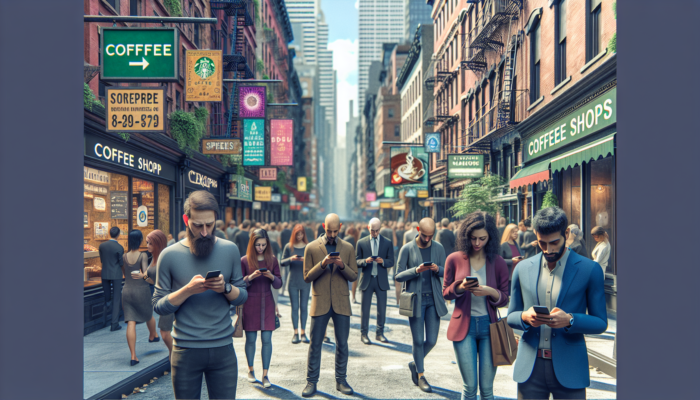Internet Marketing Agencies: Winning Strategies for Success
Explore the Extensive Services Offered by Premier Internet Marketing Agencies
Elevate Your Online Visibility with Professional Search Engine Optimisation (SEO)

Boosting a website’s online visibility through effective Search Engine Optimisation (SEO) is essential for drawing in organic traffic and supporting sustainable business growth. Internet marketing agencies deploy a range of sophisticated techniques specifically designed to enhance website performance in search engine rankings, which ultimately assists businesses in achieving a superior position in search results. This comprehensive approach involves meticulous keyword research, thorough on-page optimisation, and strategic backlink development. For instance, agencies conduct in-depth keyword analyses to pinpoint high-traffic search phrases pertinent to a client’s sector. By artfully embedding these keywords within the website content, agencies significantly improve the chances of securing a prime position on the much-sought-after first page of search results, leading to increased site traffic.
Furthermore, on-page optimisation is far more expansive than mere keyword placement; it involves refining meta tags, headers, and images to align with contemporary search engine algorithms. Such technical enhancements are crucial as they directly affect how search engines evaluate and rank websites. A well-structured site not only enriches user experience but also encourages longer session durations, further amplifying SEO efforts. Additionally, internet marketing agencies diligently monitor performance metrics and adjust their tactics in response to shifts in algorithms and user behaviour, ensuring ongoing online visibility and relevance in an ever-evolving digital landscape.
Moreover, the significance of high-quality, engaging content cannot be overstated. Search engines favour well-crafted, relevant, and informative content that provides genuine value to users. Consequently, many agencies advocate for regular content updates, including captivating blogs or articles, that deliver insights and knowledge to visitors. Engaging content not only attracts users but also encourages backlinks from other authoritative sites, which further enhances SEO performance. A holistic SEO strategy can lead to a surge in organic traffic, improved conversion rates, and overall enhanced business performance.
Generate Immediate Traffic with Strategic Pay-Per-Click Advertising (PPC)
In the highly competitive domain of digital marketing, internet marketing agencies harness the potential of Pay-Per-Click (PPC) advertising to drive instant traffic to client websites. This innovative strategy empowers businesses to bid on keywords relevant to their offerings, allowing ads to be prominently featured in search engine results. The primary advantage of PPC lies in its capability to deliver immediate outcomes; unlike organic strategies that may require time to manifest results, PPC campaigns can start generating traffic right from the moment they go live.
The workings of PPC involve careful budget management and determining the cost per click, ensuring that businesses only incur expenses when someone clicks on their advertisement. This makes PPC an economically viable option for many organisations. For instance, an agency might initiate a campaign targeting particular demographics or geographical regions, ensuring that ads reach the most pertinent audiences. This focused approach not only increases the likelihood of conversions but also maximises the return on investment, establishing PPC as a crucial element of digital marketing.
Additionally, internet marketing agencies employ advanced analytics tools to meticulously track the performance of campaigns. By assessing click-through rates, conversion rates, and other essential performance indicators, agencies can refine their strategies in real-time. This data-driven approach enables marketers to make informed decisions regarding keyword bidding, ad placements, and overall strategy modifications, leading to the continual optimisation of advertising efforts. In an environment where every click matters, effective PPC management can be the decisive factor distinguishing a successful campaign from wasted expenditure.
Boost Brand Engagement through Strategic Social Media Marketing
Leveraging the extensive reach of social media platforms is essential for modern marketing strategies. Internet marketing agencies utilise social media to enhance brand recognition, engage audiences, and drive significant website traffic. Each platform, from Facebook to Instagram, offers unique opportunities for interaction and community engagement, allowing agencies to develop campaigns that resonate with diverse target demographics.
Creating a robust social media strategy involves crafting engaging content that encourages audience interaction. This may include visually appealing graphics or insightful posts that prompt discussions. For example, an agency might initiate a campaign that invites user-generated content, cultivating a sense of community while fostering brand loyalty. Consistent engagement with followers through comments, messages, and shares can significantly enhance brand visibility and reputation, positioning social media as a vital channel for contemporary marketing.
Moreover, paid advertising on social media platforms enables businesses to quickly reach wider audiences. Targeting options allow agencies to focus on specific demographics, interests, and behaviours, ensuring that the right message is delivered to the right individuals. The integration of analytics is critical; by monitoring engagement metrics, agencies can assess the effectiveness of their campaigns and adjust strategies as necessary. In a rapidly changing digital landscape, the ability to pivot and react to audience feedback is crucial for successful social media marketing.
Engage Your Audience with Compelling Content Marketing Strategies

At the core of effective digital marketing lies content marketing, a strategy employed by internet marketing agencies to create and disseminate valuable, relevant content aimed at attracting and retaining a clearly defined audience. This approach not only establishes the brand’s authority but also nurtures trust and engagement, which are pivotal components of the customer journey.
Content marketing encompasses a variety of formats, including blogs, videos, infographics, and podcasts. Each format presents unique advantages depending on the target audience and marketing goals. For instance, an agency may publish detailed articles addressing prevalent industry challenges, thereby positioning the brand as a thought leader. Conversely, video content can significantly boost engagement, as visual storytelling tends to captivate audiences more than text alone.
Moreover, consistency in content output is vital. Regularly scheduled content that aligns with audience interests can foster a loyal following. Internet marketing agencies often utilise editorial calendars to effectively plan and execute content strategies. This structured approach facilitates the integration of SEO best practices, ensuring that content is both engaging and readily discoverable by search engines.
Importantly, content marketing prioritises delivering value rather than mere promotion. This could involve educational resources that assist users in solving problems or entertaining pieces that resonate emotionally. By focusing on the audience’s needs and interests, agencies can foster meaningful interactions and encourage profitable customer actions.
Harness the Power of Email Marketing for Direct Customer Engagement
Despite the increasing popularity of social media, email marketing remains a highly effective tool for directly connecting with customers. Internet marketing agencies implement email campaigns to nurture leads and engage both potential and existing customers. This direct communication channel allows businesses to send personalised messages that resonate with their audience’s interests and behaviours, fostering deeper connections.
Effective email marketing strategies commonly involve segmenting audiences based on their interactions with the brand. This means tailoring content to specific groups, enhancing relevance and increasing engagement likelihood. For example, an agency might send tailored offers to customers who have previously purchased similar products, thereby boosting conversion rates and overall customer satisfaction.
Moreover, the importance of A/B testing in email campaigns cannot be overstated. Agencies can discern what resonates best with their audience by experimenting with various subject lines, content layouts, and calls to action. This data-driven approach ensures continuous campaign refinement, maximising engagement and sales potential.
Additionally, automation tools can streamline email marketing efforts. Automated campaigns allow agencies to send timely messages based on customer behaviour, such as welcome emails for new subscribers or reminders for abandoned carts. By leveraging automation, internet marketing agencies can maintain consistent communication with their audience, nurturing relationships that lead to increased customer loyalty and repeat business.
Uncover the Major Benefits of Partnering with Internet Marketing Agencies
Access Expert Knowledge and Industry Experience for Enhanced Marketing Insights

The digital marketing landscape is constantly evolving, making it essential for businesses to stay ahead of trends and best practices. By collaborating with internet marketing agencies, companies gain access to specialised expertise and extensive experience that can significantly enhance their marketing endeavours. These professionals have dedicated years to refining their skills and understanding effective strategies across diverse sectors.
One of the primary advantages of working with seasoned experts is their ability to swiftly identify and execute effective strategies. They comprehend the complexities of various marketing channels and can recommend tailored approaches that align with a business’s specific objectives. For example, an agency may possess in-depth knowledge of the latest algorithm updates, enabling it to adjust strategies and maintain strong client visibility.
Furthermore, these agencies offer a broad spectrum of services that encompass every aspect of digital marketing, ranging from SEO to social media management. This comprehensive approach allows businesses to implement cohesive marketing strategies rather than fragmented efforts that may confuse potential customers. The combination of diverse expertise and industry-specific insights ensures that marketing campaigns are not only effective but also aligned with current trends.
Additionally, internet marketing agencies frequently collaborate with a wide array of businesses, providing them with a unique perspective on proven tactics across various industries. This cross-pollination of ideas can inspire innovative strategies that a single company might not conceive independently. The extensive experience these agencies bring can be invaluable for navigating the complexities of the digital landscape.
Enhance Operational Efficiency by Saving Time and Resources
Outsourcing marketing tasks to internet marketing agencies can be a transformative strategy for businesses looking to improve efficiency. By delegating marketing responsibilities to specialists, companies can free up valuable time and resources to focus on core operations. This allows businesses to concentrate on their primary objectives while entrusting the complexities of digital marketing to skilled professionals.
Managing an in-house marketing team can be both time-consuming and financially burdensome. Hiring full-time staff involves salaries, training costs, and benefits, which can strain budgets, especially for small to medium-sized enterprises. In contrast, partnering with an agency provides access to a team of specialists without the associated overhead costs, allowing for a more flexible financial approach.
Moreover, internet marketing agencies offer scalability. As businesses expand, their marketing requirements evolve, and agencies can adjust strategies and resources accordingly. This flexibility ensures that marketing efforts remain aligned with business objectives, whether increasing advertising during peak seasons or launching new products. Such adaptability is particularly advantageous in today’s fast-paced business environment, where agility is crucial.
Furthermore, the time saved through outsourcing can lead to faster execution of marketing strategies. With dedicated professionals, campaigns can be launched more swiftly and effectively. This rapid response to market changes can provide businesses with a competitive edge, enabling them to seize new opportunities as they arise.
Achieve Measurable Results and Harness the Power of Analytics
One of the most significant advantages of engaging internet marketing agencies is their commitment to delivering measurable results. In a data-driven era, the ability to track and analyse marketing performance is essential for understanding which strategies yield the most favourable outcomes. These agencies utilise advanced analytics tools that provide insights into campaign performance, allowing businesses to make informed decisions based on solid data.
By monitoring key metrics such as website traffic, conversion rates, and engagement levels, agencies can assess the effectiveness of their marketing efforts. This data-driven approach enables real-time adjustments, ensuring that campaigns can be optimised for maximum impact. For instance, if a specific ad campaign underperforms, marketers can analyse the data to identify areas for improvement and implement changes promptly.
Moreover, detailed reporting provided by internet marketing agencies allows businesses to understand their return on investment (ROI). These reports empower firms to allocate resources more effectively and make strategic decisions regarding future marketing initiatives by providing clear evidence of what works and what doesn’t. This transparency fosters trust and confidence in the partnership, ensuring long-term collaboration.
Ultimately, measurable results demonstrate the value of marketing efforts and contribute to strategic planning. With data-driven insights, businesses can identify trends and shifts in consumer behaviour, allowing them to stay ahead of the competition. This proactive marketing approach guarantees that companies remain relevant and competitive in an ever-evolving landscape.
Cost-Effectiveness: A Strategic Investment for Your Business
The financial implications of maintaining an in-house marketing team can be overwhelming, particularly for smaller businesses. Engaging internet marketing agencies often proves to be a more economical solution, providing flexibility and reducing overhead costs associated with staffing. By outsourcing, businesses can access a broad spectrum of expertise without the burden of employee-related expenses.
Moreover, many agencies offer flexible pricing models that cater to various budgets, whether a business requires comprehensive marketing services or specific campaigns. Internet marketing agencies can customise their offerings to meet unique needs, enabling companies to scale their marketing efforts according to their financial capabilities without compromising quality or effectiveness.
In addition, the value derived from hiring specialists frequently leads to superior results compared to an in-house team. The expertise and experience these agencies bring can drive higher conversion rates and improved ROI, ultimately making outsourcing a cost-effective choice. For example, a well-executed PPC campaign managed by seasoned professionals can yield exceptional results that far exceed the costs associated with their services.
Furthermore, collaborating with marketing agencies allows businesses to avoid the expenses related to ongoing training and development for internal staff. Marketing trends evolve rapidly, and these agencies are dedicated to staying abreast of the latest innovations and strategies. This commitment to continual improvement ensures that businesses benefit from cutting-edge tools and techniques without incurring additional training costs.
Important Factors to Consider When Choosing the Right Internet Marketing Agency
Conduct Comprehensive Research on Agency Reputation and Client Feedback
When selecting an internet marketing agency, assessing reputation and client reviews is critical. The experiences of previous clients provide invaluable insights into a firm’s reliability, effectiveness, and professionalism. Prospective businesses should undertake thorough research, examining testimonials, case studies, and industry accolades to evaluate a firm’s standing within the market.
Reputable agencies often showcase their success stories through detailed case studies that illustrate the challenges faced by clients and the strategies employed to achieve results. By analysing these narratives, potential clients can determine whether the agency’s expertise aligns with their unique needs. For example, a company aiming to enhance its SEO might seek agencies that have successfully elevated the online visibility of similar businesses.
Moreover, online reviews offer real-time feedback regarding a firm’s performance. Platforms such as Google, Trustpilot, and industry-specific forums enable clients to share their experiences, assisting businesses in making informed choices. An agency with a consistent record of positive reviews can instil confidence, while a pattern of negative feedback should raise concerns about the quality of service provided.
Networking within industry circles can yield valuable recommendations as well. Engaging with peers and industry leaders can uncover insights into which firms have a proven track record of success. Ultimately, diligent research into reputation and reviews can guide businesses towards partners that meet and exceed their expectations.
Assess Comprehensive Service Offerings and Customisation Options
Choosing the right internet marketing agency necessitates carefully evaluating their service offerings and the level of customisation available. Every business is unique, and a one-size-fits-all approach rarely yields optimal results. Therefore, agencies that provide tailored solutions based on individual client needs are often more valuable partners.
When assessing potential agencies, businesses should consider the breadth of services offered. An ideal agency will provide comprehensive marketing solutions, encompassing SEO, PPC, social media, content marketing, and more. This diversity facilitates a cohesive marketing strategy that effectively integrates various channels, making it easier to achieve overarching business goals.
Customisation is equally vital. An agency that invests time in understanding a client’s specific objectives, target audience, and market dynamics is more likely to devise effective strategies. This could involve bespoke content creation, targeted ad campaigns, or personalised social media strategies that resonate with specific demographics. A collaborative approach ensures that marketing efforts align with the client’s vision and goals.
Additionally, businesses should inquire about the agency’s willingness to adapt and evolve strategies over time. The digital landscape is dynamic, and successful partnerships require flexibility in response to changing market conditions. Agencies that prioritise ongoing communication and regular strategy reviews can foster a more productive relationship, leading to sustained success.
Weigh Costs Against Value Proposition in Your Decision-Making Process
While cost is undoubtedly a significant factor when selecting an internet marketing agency, it should not be the only consideration. While budget limitations are important, it’s equally critical to evaluate a firm’s value proposition. A lower price may seem appealing, but if it comes with subpar service or results, it could ultimately lead to wasted resources and missed opportunities.
Businesses should assess the potential return on investment (ROI) from marketing initiatives when evaluating costs. An agency with a proven track record may charge higher fees, yet their results could far surpass those of a less expensive competitor. Therefore, understanding the potential benefits of hiring a particular agency is essential for making an informed decision that promotes long-term success.
Furthermore, agencies that provide detailed breakdowns of their pricing structures and services help businesses comprehend exactly what they are investing in. Transparency in pricing fosters trust and facilitates informed comparisons, ensuring that the services included align with the business’s goals and that the agency demonstrates a commitment to delivering tangible results.
Ultimately, the decision should encompass both cost and anticipated value. Striking a balance between budget limitations and the potential for successful marketing outcomes will lead to a partnership that drives growth and enhances brand visibility.
Emerging Trends Influencing the Future of Internet Marketing
The Rise of Video Content in Marketing Strategies
The digital marketing landscape is undergoing a remarkable transformation with the ascendance of video content as a preferred medium for audience engagement. Internet marketing agencies are embracing this trend, leveraging the power of visuals to communicate messages more effectively. Video content has become increasingly vital in marketing strategies due to its capacity to capture attention and foster emotional connections with viewers.
Video is inherently more engaging than text, providing a dynamic means to showcase products, narrate stories, and convey brand values. Social media platforms such as Instagram and TikTok have popularised short-form videos, making them integral components of marketing campaigns. For instance, brands can create captivating snippets that highlight product features or share customer testimonials, enhancing relatability and trust among consumers.
Furthermore, video content is incredibly versatile. From live streams to animated explainer videos, agencies can tailor their video strategies to suit various marketing objectives. Tutorials, webinars, and behind-the-scenes footage can humanise brands and foster deeper connections with audiences. As consumer preferences shift towards video, internet marketing agencies have adapted their strategies to leverage this trend, ensuring clients remain relevant and competitive in the digital arena.
Moreover, the emergence of platforms prioritising video content necessitates that businesses optimise their strategies accordingly. Understanding the specifications and audience behaviours on platforms like YouTube or TikTok is essential for maximising reach. Consequently, firms that incorporate video into their marketing strategies are likely to experience higher engagement rates and improved conversion outcomes, solidifying video’s role in contemporary marketing.
The Critical Importance of Mobile Optimisation in Marketing
In an era dominated by mobile devices, the significance of mobile optimisation cannot be overstated. Internet marketing agencies are at the forefront of ensuring that websites and marketing campaigns are seamlessly integrated across all devices. With a substantial portion of web traffic originating from smartphones and tablets, businesses can no longer afford to neglect the mobile user experience.
Mobile optimisation involves creating a user-friendly experience specifically designed for smaller screens. This includes responsive design, fast loading times, and intuitive navigation. A website that is not optimised for mobile can lead to high bounce rates, as users quickly abandon sites that are challenging to navigate on their devices. For instance, an agency might implement mobile-friendly layouts and streamline content to enhance user experience.
Additionally, mobile optimisation is crucial for search engine rankings. Google prioritises mobile-friendly sites in its algorithms, meaning businesses lacking mobile optimisation risk losing visibility in search results. By regularly updating and testing mobile interfaces, internet marketing agencies help clients maintain their competitive edge and drive traffic from mobile users, capitalising on this vital market segment.
Alongside website optimisation, mobile marketing strategies such as SMS marketing and app-based promotions offer unique opportunities to connect with customers. These strategies facilitate direct communication, allowing businesses to reach users in the environments where they are most active. As mobile device usage continues to rise, prioritising mobile optimisation is essential for effective digital marketing and customer engagement.
The Growth and Influence of Influencer Marketing
Influencer marketing has evolved into a dominant force within digital marketing, and internet marketing agencies increasingly recognise its substantial potential. Collaborating with influencers to promote brands can significantly amplify reach and cultivate trust among target audiences. This approach capitalises on the credibility that influencers have built within their niches, allowing brands to tap into established communities and consumer bases.
Influencers often possess loyal followers who value their opinions, making them invaluable assets for brands seeking to enhance visibility. By partnering with influencers, agencies can create authentic content that resonates on a personal level with audiences. For instance, a beauty brand may collaborate with a well-known makeup artist to showcase products in a relatable manner, resulting in heightened engagement and conversion rates.
Moreover, the diversity of influencer marketing allows for highly targeted campaigns. Brands can select influencers whose audiences align with their target demographics, ensuring marketing messages reach the right people. This specificity can lead to more impactful campaigns than traditional marketing methods, yielding higher returns on investment.
Additionally, as influencer marketing continues to evolve, internet marketing agencies are implementing innovative strategies, including collaborations with micro and nano-influencers. While these individuals may have smaller followings, they often boast higher engagement rates and more niche audiences. By leveraging these influencers, brands can achieve meaningful connections and drive authentic interactions, solidifying influencer marketing’s role in the future of digital marketing.
Challenges Facing Internet Marketing Agencies
Navigating Constant Algorithm Changes
The digital marketing landscape is notorious for its ever-changing algorithms, presenting significant challenges for internet marketing agencies. Search engines and social media platforms frequently revise their algorithms, impacting how content is ranked and displayed. Staying ahead of these changes is vital for agencies to maintain their clients’ visibility and effectiveness in their marketing efforts.
Agencies must continuously monitor industry news and updates to adapt their strategies accordingly. This often entails investing time and resources into research and training to understand the implications of algorithm changes. For instance, a recent update from Google may prioritise mobile-friendliness, necessitating agencies to overhaul their clients’ websites to meet new standards and ensure compliance with best practices.
Moreover, the unpredictability of algorithm changes can lead to fluctuations in campaign performance. A strategy that was effective last month may suddenly decline due to a shift in the algorithm, requiring constant evaluation and agility in strategy implementation. Agencies must be prepared to pivot quickly to ensure clients remain competitive and visible in an ever-evolving landscape.
Additionally, navigating algorithm changes necessitates a data-driven approach. By utilising analytics tools, agencies can track performance metrics and identify declines in visibility or engagement. This proactive stance allows for timely adjustments and ensures marketing efforts align with best practices. Ultimately, effectively navigating algorithm changes can be a defining factor in an agency’s overall success and longevity.
Managing Client Expectations Effectively
One of the most significant challenges internet marketing agencies face is managing client expectations. In the fast-paced world of digital marketing, clients often seek immediate results, leading to unrealistic expectations. This pressure can create tensions within the client-agency relationship if not addressed with care and transparency.
Clear communication is essential in setting realistic expectations. Agencies should educate clients about the complexities of digital marketing, emphasising that success often takes time and requires consistent effort. For instance, while SEO can lead to substantial organic traffic, it is a long-term strategy that may not produce immediate results. By explaining the nuances of various marketing strategies, agencies can foster a more understanding and collaborative relationship with their clients.
Moreover, regular reporting and updates can assist in managing expectations. By providing clients with transparent insights into campaign performance, agencies can demonstrate progress and highlight areas that may require additional time or adjustments. This transparency builds trust and allows for open dialogue about campaign goals and timelines, ensuring all parties remain aligned.
Establishing achievable milestones can also enhance clients’ engagement and investment in the process. By breaking down larger objectives into smaller, manageable goals, agencies can showcase progress over time, helping clients maintain optimism about the journey toward achieving successful outcomes. Effectively managing expectations can lead to fruitful partnerships and successful marketing results.
Differentiating in a Highly Competitive Market
In an increasingly saturated market, internet marketing agencies face the challenge of distinguishing themselves amid fierce competition. As more businesses recognise the importance of digital marketing, the number of agencies offering these services continues to grow. This saturation makes it challenging for agencies to differentiate themselves and attract new clients.
To navigate this challenge, agencies must focus on articulating their unique value propositions. Highlighting specific areas of expertise, success stories, and client testimonials can help establish credibility and showcase what sets an agency apart from its competitors. For example, an agency specialising in a particular industry may leverage that expertise to appeal to businesses within that niche, enhancing its attractiveness.
Moreover, developing innovative strategies can also provide a competitive advantage. Staying ahead of industry trends and adopting cutting-edge technologies can position agencies as leaders in the field. For instance, agencies that invest in AI and machine learning for data analysis can offer clients deeper insights and more personalised marketing strategies, increasing their overall effectiveness.
Networking and cultivating relationships within the industry can also help agencies carve out their niche. Collaborating with other businesses or professionals can lead to mutually beneficial partnerships that enhance visibility and credibility. As agencies navigate the competitive landscape, focusing on innovation and collaboration can help them thrive, ensuring sustained growth and success.
Adapting to Changing Consumer Behaviours
Consumer behaviours are continually evolving, significantly influenced by technological advancements and shifting societal norms. For internet marketing agencies, this presents both challenges and opportunities. Understanding these shifts is crucial for developing effective marketing strategies that resonate with today’s consumers.
For instance, the surge of e-commerce has transformed how consumers shop. Many now favour online shopping experiences that prioritise convenience and personalised interactions. Agencies must adapt their strategies to meet these expectations, utilising data analytics to understand consumer preferences and behaviours. This might involve personalised email campaigns or targeted social media ads that directly address individual interests and needs.
Additionally, the growing emphasis on authenticity and transparency has shifted consumer expectations. Brands that communicate openly and ethically are more likely to foster trust and loyalty. Internet marketing agencies must emphasise these values in their campaigns, ensuring that messaging aligns with consumer expectations for honesty and corporate responsibility.
Furthermore, the impact of social media on consumer behaviour cannot be overlooked. Consumers increasingly rely on social platforms for product recommendations and reviews. Agencies must leverage these platforms to engage with audiences authentically, encouraging user-generated content and fostering community engagement. By understanding and adapting to evolving consumer behaviours, agencies can create impactful marketing strategies that drive meaningful results.
The Future Landscape for Internet Marketing Agencies
Integrating AI and Machine Learning into Marketing Strategies
As technology continues to advance, the integration of artificial intelligence (AI) and machine learning into digital marketing strategies is becoming increasingly prevalent. Internet marketing agencies harness these technologies to enhance data analysis capabilities, optimise campaigns, and deliver more personalised consumer experiences.
AI can process vast amounts of data at unprecedented speeds, allowing agencies to uncover insights that were previously unattainable. By analysing consumer behaviours, preferences, and engagement patterns, agencies can customise marketing strategies to meet individual needs. This level of personalisation not only improves user experiences but also drives higher conversion rates and customer satisfaction.
Moreover, machine learning algorithms can automate various marketing processes, from audience segmentation to ad placement optimisation. By learning from past performance, these algorithms can make real-time campaign adjustments, ensuring that marketing efforts are continually refined for maximum effectiveness. This not only saves time but also enhances the overall efficiency of marketing strategies.
Additionally, AI-powered chatbots are transforming customer interactions. These virtual assistants can handle inquiries, provide product recommendations, and facilitate transactions, offering support around the clock. By integrating chatbots into their strategies, internet marketing agencies can enhance customer service, improve response times, and boost customer satisfaction and loyalty.
As AI and machine learning technologies evolve, their potential to reshape the future of digital marketing is immense. Agencies that embrace these innovations will be better positioned to deliver results-driven strategies that resonate with consumers in an increasingly competitive landscape.
Prioritising Personalisation and User Experience
The growing demand for personalised experiences is reshaping the digital marketing landscape. Internet marketing agencies are increasingly prioritising personalisation to cultivate meaningful connections with consumers. Today’s audiences expect tailored content that addresses their unique interests and preferences, making personalisation a critical element of successful marketing strategies.
Personalisation can manifest in various forms, from customised email campaigns to dynamic website content that adapts to user behaviours. By leveraging data analytics, agencies can segment audiences based on demographics, past interactions, and purchasing behaviours. This segmentation facilitates targeted messaging that resonates with specific groups, leading to increased engagement and higher conversion rates.
Furthermore, user experience (UX) is integral to personalisation efforts. Consumers are more likely to engage with brands that provide seamless, intuitive experiences across all touchpoints. Internet marketing agencies must focus on optimising websites and marketing campaigns to enhance usability, ensuring consumers can easily navigate content and find what they need without frustration.
In addition to personalisation, fostering a sense of community can enhance user experience. Brands that encourage customer engagement through social media interactions, forums, or loyalty programs can cultivate strong connections with their audiences. By prioritising personalisation and user experience, agencies can build lasting relationships that lead to customer loyalty, repeat business, and sustained growth.
Commitment to Ethical and Sustainable Marketing Practices
As consumers become increasingly aware of social and environmental issues, the demand for ethical and sustainable marketing practices is on the rise. Internet marketing agencies recognise the importance of aligning their strategies with ethical considerations, focusing on transparency, sustainability, and corporate social responsibility.
Brands that prioritise ethical practices are more likely to resonate with consumers who value authenticity and integrity. Agencies can enhance brand reputation and build trust with their audiences by promoting responsible sourcing, fair labour practices, and environmentally friendly initiatives. This commitment to ethical practices should be reflected in marketing messaging, ensuring consumers feel confident in their purchasing decisions and brand loyalty.
Moreover, sustainable marketing strategies can provide a competitive advantage. Consumers are increasingly seeking brands that demonstrate a commitment to sustainability. By incorporating eco-friendly messaging and practices into their campaigns, internet marketing agencies can attract environmentally conscious consumers and differentiate themselves in a crowded marketplace.
Additionally, transparency in marketing communications is essential for fostering trust. Brands that openly share their values and practices are more likely to build lasting connections with consumers. By prioritising ethical and sustainable practices, agencies can create impactful marketing strategies that drive results while contributing positively to society and the environment.
Exploring Growth Opportunities in Emerging Markets
The digital economy is rapidly expanding in emerging markets, presenting new opportunities for internet marketing agencies. As more businesses enter these markets, agencies must adapt their strategies to cater to the unique cultural and economic landscapes. This expansion not only diversifies client bases but also opens doors to untapped potential for growth and innovation.
Emerging markets often exhibit distinct consumer behaviours and preferences. Understanding these nuances is crucial for developing effective marketing strategies. For instance, social media usage may vary significantly across regions, necessitating tailored content and engagement approaches. By conducting thorough market research, agencies can identify key trends and adapt their campaigns to resonate with local audiences, fostering deeper connections and brand loyalty.
Moreover, the rise of mobile connectivity in emerging markets is transforming consumer interactions. As more individuals gain access to smartphones and the internet, agencies must focus on mobile-first strategies that prioritise user experience on smaller devices. This may involve developing mobile-optimised websites, utilising SMS marketing, or creating app-based promotions that cater to this growing demographic.
Additionally, partnerships with local influencers can enhance brand credibility and reach in emerging markets. Collaborating with individuals who have a deep understanding of local cultures and consumer preferences can facilitate authentic connections with target audiences. By expanding into emerging markets and tailoring strategies accordingly, internet marketing agencies can unlock new growth avenues for their clients while driving sustained success.
Frequently Asked Questions (FAQs)
What services do internet marketing agencies provide?
Internet marketing agencies offer a wide array of services, including Search Engine Optimisation (SEO), Pay-Per-Click (PPC) advertising, social media marketing, content marketing, and email marketing, all aimed at enhancing a business’s online presence and performance.
How can hiring an internet marketing agency benefit my business?
Engaging an internet marketing agency provides expertise, time efficiency, measurable outcomes, and cost-effectiveness. It allows businesses to focus on their core operations while specialists manage comprehensive marketing strategies tailored to their specific needs.
What factors should I consider when choosing an internet marketing agency?
When selecting an agency, assess their reputation, service offerings, customisation options, and value proposition. Client reviews and case studies can offer essential insights into their reliability and effectiveness in achieving successful marketing outcomes.
How does social media marketing influence brand awareness?
Social media marketing harnesses various platforms to engage audiences, build brand awareness, and drive website traffic. It fosters direct interactions that create meaningful relationships with consumers, ultimately enhancing brand recognition and loyalty.
What role does content marketing play in attracting customers?
Content marketing involves producing valuable content that addresses audience needs, establishes authority, and nurtures relationships that lead to profitable customer actions, contributing to overall business growth and success.
Why is video content increasingly popular in marketing?
Video content captures attention more effectively, enhances engagement, and allows for compelling storytelling, making it a powerful tool for connecting with audiences and promoting brands in an increasingly visual digital landscape.
How do internet marketing agencies measure campaign success?
Agencies utilise advanced analytics tools to track key performance indicators such as website traffic, conversion rates, and engagement levels, enabling data-driven adjustments to strategies for optimal campaign performance.
What challenges do internet marketing agencies encounter today?
Challenges include adapting to frequent algorithm changes, managing client expectations, navigating intense competition, and responding to evolving consumer behaviours, all of which require agility, expertise, and strategic foresight.
How is AI transforming the landscape of digital marketing?
AI enhances data analysis, automates processes, and enables personalised marketing experiences. It allows agencies to optimise campaigns and drive better results for clients, revolutionising traditional marketing methodologies.
What does the future hold for internet marketing agencies?
The future will likely see greater integration of AI, a focus on personalisation and ethical practices, and expansion into emerging markets, necessitating adaptability and innovation from agencies to remain competitive and successful.
Join us on Facebook!
The post Internet Marketing Agencies: Strategies for Success appeared first on Ezi Gold.
The Article Internet Marketing Agencies: Winning Strategies for Success Was Found On https://limitsofstrategy.com
References:
https://homerenonews.com.au/internet-marketing-agencies-strategies-for-winning-success-2/





